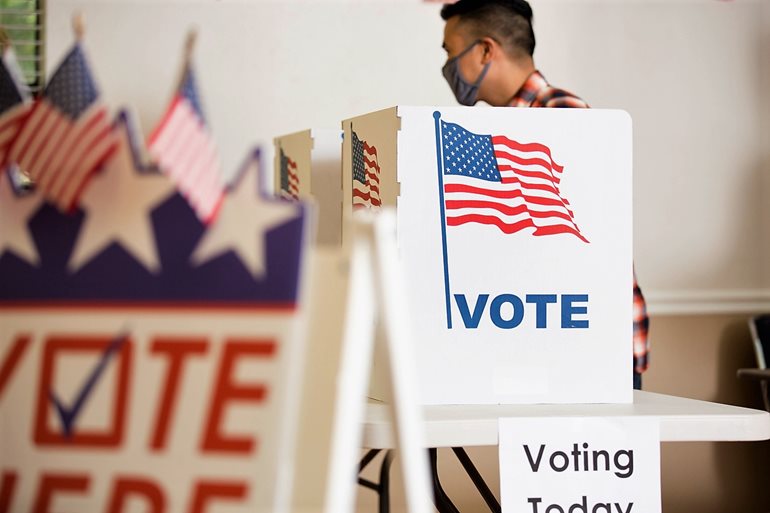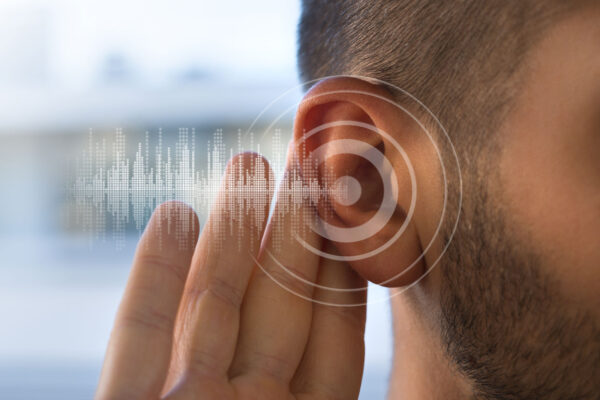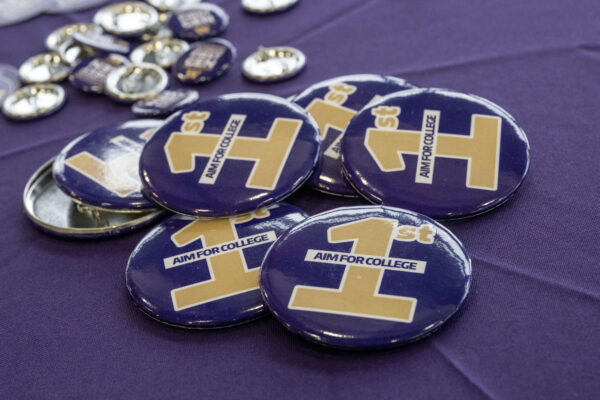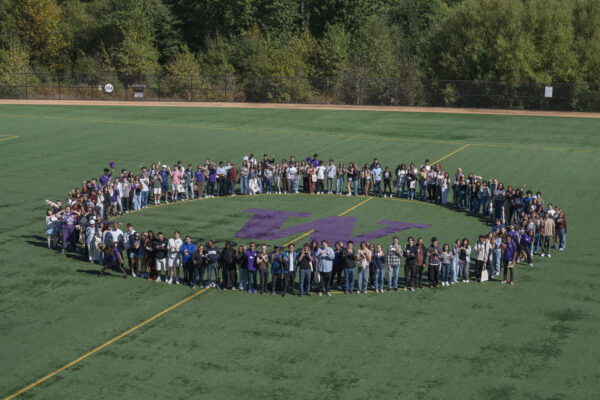As the elections unfolded dramatically this year, Assistant Teaching Professor Min Tang and Associate Professor Camille Walsh were able to teach their course, The 2020 Election: U.S Media and Politics, in real time.

Neither of them knew what would happen after Nov. 3. Walsh has been teaching in the University of Washington Bothell’s School of Interdisciplinary Arts & Sciences for a decade — and this was the first time she could build a class around the current moment.
Walsh and Tang combined their areas of expertise to create and co-teach this course. They viewed this election season as a case study from two perspectives. Walsh primarily teaches courses in the Law, Economics & Public Policy major, and Tang teaches in Media & Communication Studies major.
Conversation as a catalyst
“We structured the class in a way that allowed students to talk about self-selected issues in a community that wants to have those difficult and rewarding conversations,” said Walsh.
This class opened the door for discussion.
“What we have witnessed in the past four years,” said Tang, “reflects to some extent the failure of academia and intellectual communities to study and understand the diverse experiences of people in this country.”
As a scholar, she wants to do a better job and says it starts with talking to people. In fact, one of the class assignments she and Walsh gave was a personal journal entry that reflected on conversations students had with people in their lives who have opposing political opinions. Walsh said that in a surprising number of journal entries there was a line of communication open on difficult issues that otherwise may have been avoided.
Ian Calvert, a third-year student in the Law, Economics & Public Policy major, found the assignment beneficial. He spoke with his uncle and, despite their voting differently in the 2020 elections, they still found common ground.
“There is a lot of value in engaging in conversations with people you may initially disagree with,” Calvert said. “Everyone has unique experiences that shape their opinions. Learning more about those experiences helps build empathy and fosters an environment that facilitates understanding — and perhaps even change.”
Connecting past to present
In order for the students to have a better understanding of what happened this year, they also need to understand the nation’s history, Walsh said. She assigned the students a case study where they analyzed a past election. Going back as far as the early 20th century, they studied newspapers and other media, paying close attention to the top issues discussed that year. Students connected past to present to see where, as a society, we have made progress and where we still need to go.
Looking at voting and recounts, one comparison to this year that came up frequently was the 2000 election results that went to the Supreme Court. Walsh spoke on the history of voting rights in the United States and the contradiction between the Electoral College system and democratic rule.
“The right to vote is such an incredibly valued, foundational right that enables all of the other rights we sometimes take for granted,” said Walsh. “As students delved into the project, we learned about the history and lack of strong protection for the right to vote within the Constitution. It’s a clear contradiction.”
As part of their coursework, students looked at the large groups of people who are still not able to vote in elections. Issues discussed include racial gerrymandering, felon disenfranchisement and the intertwined roots of the Electoral College and slavery in U.S. history.
Resilience and strength
Tang and Walsh want their students to imagine a better future and begin implementing the changes they want to see in society.
“The foundation for change to happen is to find mutual ground and start the communication from there,” said Tang.
Their hope is that through the various projects and conversations in this class, their students have learned how to listen and communicate in ways that are conducive to political progress.
When thinking about the future, students were also challenged to think about how to find resilience and strength within themselves. “I really appreciated all the reminders and advice the professors gave us throughout the quarter about dealing with stress,” said Calvert.
He started setting a 20-minute time limit on reading the news each day and making sure he did something positive for himself after.
“The class taught me a lot of strategies for how to better show up for myself and my community,” Calvert said. “We are stronger together.”


